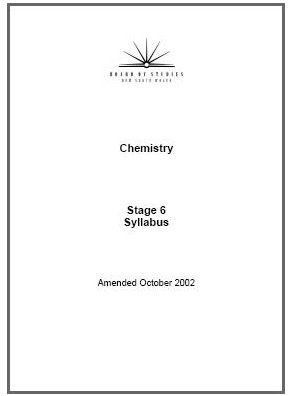[cs_content][cs_section parallax=”false” separator_top_type=”none” separator_top_height=”50px” separator_top_angle_point=”50″ separator_bottom_type=”none” separator_bottom_height=”50px” separator_bottom_angle_point=”50″ style=”margin: 0px;padding: 45px 0px;”][cs_row inner_container=”true” marginless_columns=”false” style=”margin: 0px auto;padding: 0px;”][cs_column fade=”false” fade_animation=”in” fade_animation_offset=”45px” fade_duration=”750″ type=”1/1″ style=”padding: 0px;”][cs_text]
A glossary of keywords used in the HSC Chemistry Syllabus (and in other subjects as well)
Extract from A glossary of key words (HSC). © 2010, Board of Studies NSW.
http://www.boardofstudies.nsw.edu.au/syllabus_hsc/glossary_keywords.html

Account: Account for: state reasons for, report on. Give an account of: narrate a series of events or transactions.
Analyse: Identify components and the relationship between them; draw out and relate implications.
Apply: Use, utilise, employ in a particular situation.
Appreciate: Make a judgement about the value of.
Assess: Make a judgement of value, quality, outcomes, results or size.
Calculate: Ascertain/determine from given facts, figures or information.
Clarify: Make clear or plain.
Classify: Arrange or include in classes/categories.
Compare: Show how things are similar or different.
Construct: Make; build; put together items or arguments.
Contrast: Show how things are different or opposite.
Critically (analyse/evaluate): Add a degree or level of accuracy depth, knowledge and understanding, logic, questioning, reflection and quality to (analysis/evaluation).
Deduce: Draw conclusions.
Define: State meaning and identify essential qualities.
Demonstrate: Show by example.
Describe: Provide characteristics and features.
Discuss: Identify issues and provide points for and/or against.
Distinguish: Recognise or note/indicate as being distinct or different from; to note differences between.
Evaluate: Make a judgement based on criteria; determine the value of.
Examine: Inquire into.
Explain: Relate cause and effect; make the relationships between things evident; provide why
and/or how.
Extract: Choose relevant and/or appropriate details.
Extrapolate: Infer from what is known.
Identify: Recognise and name.
Interpret: Draw meaning from.
Investigate: Plan, inquire into and draw conclusions about.
Justify: Support an argument or conclusion.
Outline: Sketch in general terms; indicate the main features of.
Predict: Suggest what may happen based on available information.
Propose: Put forward (for example a point of view, idea, argument, suggestion) for
consideration or action.
Recall: Present remembered ideas, facts or experiences.
Recommend: Provide reasons in favour.
Recount: Retell a series of events.
Summarise: Express, concisely, the relevant details.
Synthesise: Putting together various elements to make a whole.
Comments
[/cs_text][/cs_column][/cs_row][/cs_section][/cs_content]